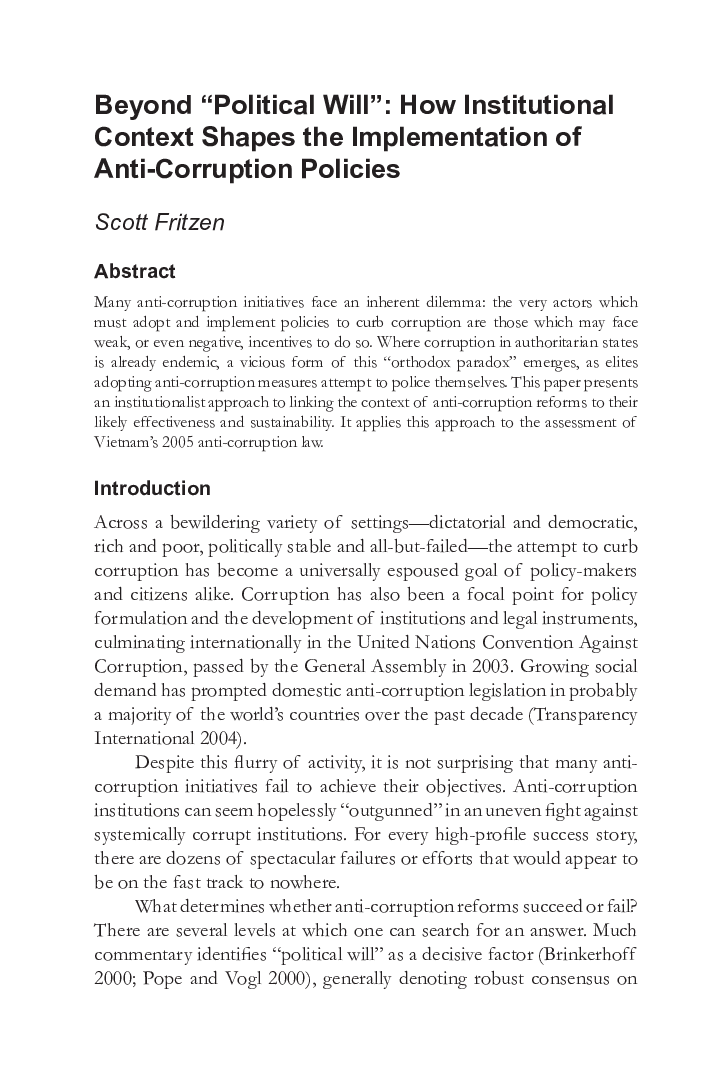| Article ID | Journal | Published Year | Pages | File Type |
|---|---|---|---|---|
| 10507554 | Policy and Society | 2005 | 18 Pages |
Abstract
Many anti-corruption initiatives face an inherent dilemma: the very actors which must adopt and implement policies to curb corruption are those which may face weak, or even negative, incentives to do so. Where corruption in authoritarian states is already endemic, a vicious form of this “orthodox paradox” emerges, as elites adopting anti-corruption measures attempt to police themselves. This paper presents an institutionalist approach to linking the context of anti-corruption reforms to their likely effectiveness and sustainability. It applies this approach to the assessment of Vietnam's 2005 anti-corruption law.
Related Topics
Social Sciences and Humanities
Social Sciences
Geography, Planning and Development
Authors
Scott Fritzen,
